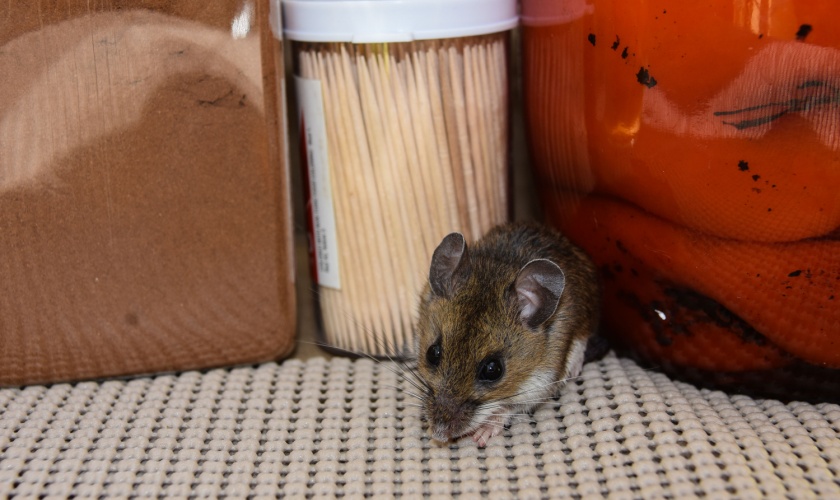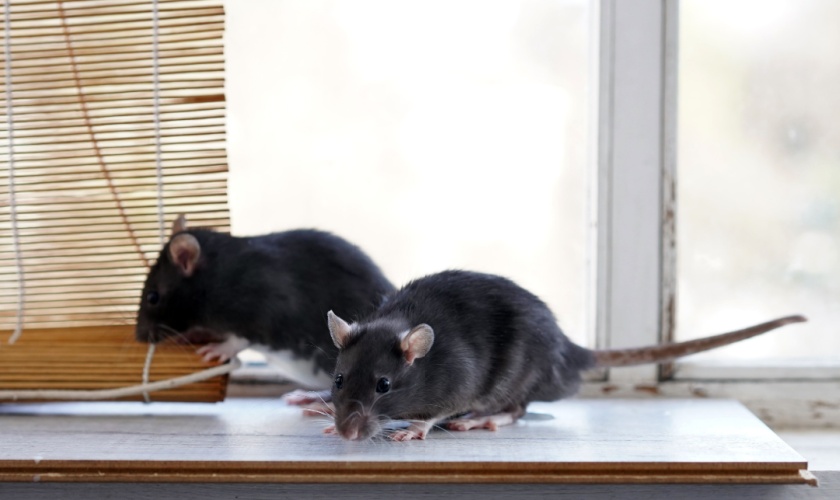Morgan Hill, CA, is known for its scenic views, vineyards, and a pleasant community atmosphere. However, like many other parts of California, Morgan Hill is not immune to rodent infestations, especially during the cooler months. Rats and mice are constantly on the lookout for food, water, and shelter, and your property might provide the perfect environment for them to thrive. A rodent infestation can lead to property damage, food contamination, and health risks for your family.
Preventing a rodent infestation is crucial if you want to protect your Morgan Hill property. Here’s a guide to help you understand the risk factors, spot the signs of rodent activity, and implement effective prevention strategies:
Why Rodent Infestations Happen in Morgan Hill
Rodents are highly adaptable creatures that can live in urban, suburban, and rural areas. Morgan Hill’s mild climate and proximity to open spaces make it a prime location for rodents to thrive. Here are some reasons why rodent infestations are common in the area:
1. Access to Food and Water
Rodents are constantly searching for food, and they aren’t picky eaters. Pet food, bird seed, compost, garbage, and even fruit trees can provide easy meals for rodents. Additionally, standing water in gardens, clogged gutters, or leaky pipes can attract rodents seeking hydration.
2. Shelter in Cooler Months
As the weather cools down, rodents like mice and rats look for warm, sheltered environments to build their nests. Your home, attic, garage, or shed may provide the perfect refuge. Rodents are skilled at finding small gaps and cracks in your home’s exterior and using them as entry points.
3. Breeding Grounds
Once inside, rodents breed quickly. A single mouse can give birth to 10 litters per year, with each litter containing up to 12 pups. Rats have similarly fast reproduction rates. Without immediate action, a small rodent issue can escalate into a full-blown infestation.
Signs of a Rodent Infestation
Before a rodent infestation gets out of control, it’s essential to recognize the signs early. Here’s what to look for around your property:
1. Droppings
Mice and rat droppings are a common sign of rodent activity. Mouse droppings are small, dark, and shaped like rice grains, while rat droppings are larger, resembling small raisins. You’ll likely find droppings in areas like kitchens, pantries, basements, attics, or near garbage bins.
2. Gnaw Marks
Rodents constantly gnaw on materials to keep their teeth sharp. Look for gnaw marks on food packaging, wood, insulation, wires, or plastic items. Rats and mice can cause significant damage to your home’s structure and electrical systems, leading to potential fire hazards.
3. Nests
Rodents build nests using soft materials like shredded paper, fabric, insulation, and grass. These nests are typically hidden in attics, basements, wall voids, or behind large appliances.
4. Noises at Night
Rodents are nocturnal creatures, so you may hear scratching, scurrying, or squeaking sounds at night, particularly in walls, ceilings, or attics. If you hear these sounds, it’s a good indication that rodents are active inside your home.
5. Foul Odors
A strong, musty odor may be a sign of a rodent infestation. The smell comes from their droppings, urine, and nesting materials. In severe cases, the odor of a decomposing rodent may also become noticeable.
Steps to Protect Your Property from Rodents
To avoid dealing with the consequences of a rodent infestation, it’s important to take proactive steps to protect your property. Follow these strategies to keep rodents out of your home and yard:
1. Seal Entry Points
The most important step in rodent prevention is to seal off any potential entry points. Mice can squeeze through holes as small as a dime, and rats can enter through gaps as small as a quarter. Inspect the exterior of your home and look for cracks, gaps, or holes around doors, windows, vents, pipes, and the foundation.
- Use Caulk and Steel Wool: Seal small cracks and gaps using caulk or foam. For larger openings, use steel wool or metal mesh, as rodents can’t chew through these materials.
- Install Door Sweeps: Make sure that exterior doors have proper door sweeps installed to prevent rodents from slipping under them.
- Check Vents and Chimneys: Use mesh covers on vents, chimneys, and other openings that could provide rodents access to your home.
2. Eliminate Food Sources
Rodents are attracted to easily accessible food. Taking steps to eliminate food sources both inside and outside your home is key to preventing an infestation.
- Store Food Properly: Keep all food, including pet food, in airtight containers. Avoid leaving food out on counters, and ensure that pantry items are stored in durable containers like glass or metal.
- Keep Trash Secure: Use trash cans with tight-fitting lids both indoors and outdoors. Empty trash regularly, especially in the kitchen, to prevent attracting rodents.
- Clean Up Pet Food: Don’t leave pet food out overnight, and store pet food in sealed containers.
- Pick Up Fallen Fruit: If you have fruit trees in your yard, regularly pick up fallen fruit, as this can attract rodents.
3. Maintain Your Yard
Rodents often make their way inside after establishing themselves in your yard. Keeping your outdoor space tidy and free of rodent attractants is an important part of prevention.
- Trim Vegetation: Trim trees, bushes, and shrubs away from your home. Overgrown vegetation provides shelter and easy access to your roof or windows.
- Remove Debris: Piles of leaves, wood, or debris create nesting sites for rodents. Keep firewood stacked at least 20 feet away from your home and raised off the ground.
- Secure Compost and Bird Feeders: Use rodent-proof compost bins and clean up spilled bird seed regularly.
4. Fix Leaks and Moisture Issues
Rodents are drawn to water sources, so fixing leaks or areas with standing water is critical. Check your home for leaky pipes, dripping faucets, or areas with poor drainage. Keep gutters clean and ensure that rainwater flows away from your home.
When to Call a Professional
Sometimes, despite your best efforts, rodents can still find their way into your home. If you’ve taken preventive measures but continue to notice signs of rodent activity, it’s time to call a professional pest control service.
Professional pest control experts in Morgan Hill can:
- Conduct a thorough inspection of your home and property to identify entry points and nesting areas.
- Use advanced traps and baiting systems to safely and effectively remove the rodents.
- Provide long-term solutions such as rodent-proofing your home to prevent future infestations.
Rodent infestations can be a serious problem, causing damage to your Morgan Hill property and posing health risks to your family. By taking proactive steps—such as sealing entry points, eliminating food sources, maintaining your yard, and using traps or deterrents—you can significantly reduce the chances of a rodent infestation. If you suspect that rodents have already entered your home, reach out to the pros at Citra Pest Control for help.
Protecting your home from rodents will help ensure a safer, cleaner, and more comfortable living environment for you and your family year-round.

